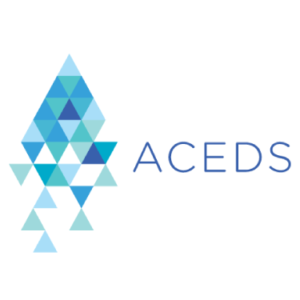This is the sixth (and final) of the 2017 Legaltech New York (LTNY) Thought Leader Interview series. eDiscovery Daily interviewed several thought leaders at LTNY (aka Legalweek) this year to get their observations regarding trends at the show and generally within the eDiscovery industry.
Today’s thought leader is Craig Ball. A frequent court appointed special master in electronic evidence, Craig is a prolific contributor to continuing legal and professional education programs throughout the United States, having delivered almost 2,000 presentations and papers. Craig’s articles on forensic technology and electronic discovery frequently appear in the national media and he teaches E-Discovery and Digital Evidence at the University of Texas School of Law. He currently blogs on eDiscovery topics at ballinyourcourt.com.
Craig provided so much good information that we decided to publish his interview in two parts. The first half of his interview was published yesterday.
Speaking of the rise in discourse you mentioned, we’ve seen a recent trend with regard to an emphasis on technology competence for attorneys and we’re up to 26 states that have adopted some sort of technology competence requirement, with Florida being the first state that has required technology CLE for their attorneys. Do you think the increased emphasis on technology competence will (finally) change the general lack of understanding of technology within the legal profession?
I think those are significant developments. Still, as we take two steps forward, we take one step back. The best example: although we’ve moved forward with the institutionalization of and impetus for competence, the greatest “stick” that we have, sanctions, have become increasingly harder to obtain for eDiscovery malfeasance. At this point, you must demonstrate an almost murderous intent to get significant sanctions. And, while I’m not troubled by the structure of 37(e) – serious sanctions have always come behind serious misconduct and not mere error – proportionality and the diminished ability to obtain sanctions have sapped the impetus to do more than the minimum. Quality is still not part of the conversation.
Abuses are still rife. Wasteful practices are everywhere. And we still have a very long way to go before we get to genuine competency. The question is, will three hours of CLE in Florida that you can satisfy in almost any way, without any testing or other check on competency, make a difference? We could do much more if we decided that competency is something we really want and demand of lawyers. We still make it optional and easy to avoid. I admire what California did with their simplified idea of “Learn it, get someone who knows it, or get out”. It’s one thing to establish that as a series of aspirations and goals – like the nine things you need to know in the California model – but it’s quite another thing to put “teeth” into those obligations. When it comes to competency, we don’t demand enough of lawyers after the Bar exam.
Too, we close ranks when it comes to malpractice stemming from technical incompetency. Judges are understandably loath to criticize their friends and colleagues. Making a pronouncement against a lawyer’s competency or integrity from the bench carries a “long tail” in terms of its consequences. So judges that otherwise might take lawyers to task feel constrained not to do so except in the most severe cases. When you only punish the most severe cases of incompetence and malfeasance, you create a false impression that those are the only kinds of cases out there.
When you only punish the most severe cases, any lawyer who might otherwise think “I’d better learn this” will look at those horrific cases and say “I’m never going to do that”. The problem is that they may do something that is just as bad – they may do it with less intent, less venal motivation – but the outcome will be the same. If I shoot someone because I don’t know which way to point a gun or I shoot someone because I want to kill them, the law distinguishes between those two, but the mourning family may not – the result is tragedy. We can forgive one instance of incompetence, but, after a while, if you’re just remaining incompetent and doing things the way you’ve always done them, that’s callous malfeasance. Every dog gets one bite, but not two, three or four. At some point you must put the dog down and punish the owner.
One of the things that coming to this event makes me think about is what a shame it is that there’s only one of these a year that requires people to come to New York City in the winter. I long for the days when Legaltech was all over the country and there were many flavors of legal technology conferences that you could attend. I think we are at an inflection point where people have come around to recognizing that they need to learn some of these things, but the resources to do so remain sparse. There are too few significant events with strong, fresh, engaging components.
For example, the frustration we have in Texas is that if we build it, they don’t always come. We need something in the marketplace and in the management of the Bars and in the educational process to train lawyers that makes this “keeping up” obligation something that we embrace with greater enthusiasm. The camaraderie, community, sharing of ideas – a lot of that has turned into YouTube videos. The “confabs” are almost all gone. You’ve got these gigantic trade shows of constituencies, but at the local level, there’s very little.
How does a practitioner who can’t justify spending three or four days in New York during the winter have a chance to look at all the wares? You can’t go to Amazon.com and search for law office management or eDiscovery software with the same ability that you can shop for a vacuum. That’s a shame. We still communicate info about eDiscovery solutions by word-of-mouth, by hype and so forth.
Take your company, CloudNine. I know your company to be very competent with a skilled group of people and competitive pricing. But, how do you break out? How do you get yourself heard in the marketplace? There are a lot of great vendors out there perceived as regional or second-tier for no reason except that there is so much noise out there and there is so little ability to compare apples to apples in an objective way. Options are drowned out by marketing budgets. Is being good and efficient and cost-effective enough to make you the winner in the marketplace? I think there is a sense among vendors that it’s not, it’s a gamed system that is all about the marketing money and not about the quality of the offering.
With that in mind and with consolidation within the eDiscovery provider community increasing, where do you see the market heading for eDiscovery providers?
As much as I want to share some optimistic observations (and I do see some things about which to be optimistic), I am deeply concerned about what the coming year is going to bring about for a number of vendors. We’ve seen consolidation. It may be bad for the consumers and it may be bad for trade shows as we have discussed. But, I think it’s about to change and the loss of players that’s coming is going to be in many ways as severe as 2008. We are seeing enormous pricing pressure and razor-thin margins. I see efforts being made to generate the appearance of good business and good sales; but when the numbers are crunched and the sales persons take their commissions, a lot of these “good sales” will be unprofitable and unsustainable.
I think we’re going to see the collapse of several operations in 2017. They can’t defy gravity much longer. When the numbers start coming in and the flattening is obvious, the VC money gets spooked and people start scrambling to get their investments out, I think we’re going to have another significant shuttering reduction in the number of offerings out there. I’m hoping that will be ameliorated somewhat by startups and so forth, but I have to share with you my candid concern. It may not all happen in 2017, it may wait until 2018 in the kind of uncertainty and optimism that comes in with regime change. All of the stunning things that are happening right now may engender lots of litigation. But, it’s hard to know whether this is good or bad for lawyers and whether it’s good or bad for litigation support. Many providers may hang on for most of 2017, but it may be the “Wile E Coyote” approach – sooner or later, you look down and realize you’ve run off the cliff. I’m sorry to be a Cassandra on that topic, but the numbers speak for themselves. People are bidding on jobs at margins that are unsustainable without either massive cuts in personnel or shortcuts in quality that will entail massive headaches.
We’ve never fully adjusted to the commoditization of eDiscovery services. There are still too many people who remember the old pricing. There are a lot of things – such as automation and the Cloud – which mean that the heyday of multi-thousand per gigabyte pricing is gone and never coming back. We cannot build our market around those margins. It’s like the oil industry – you can build for $100 a barrel oil, but you’d better realize you’re going to see $40 a barrel oil for a lot longer than you may expect. I think the eDiscovery industry was built for $100 a barrel, but we are selling e-discovery at $25 a barrel. At least that’s what the margins will look like when it shakes out.
In addition to what we’ve already discussed, what are you working on that you’d like our readers to know about?
I’ve just relocated on a more permanent basis to New Orleans, Louisiana. I will always be a Texan, but my body will be in New Orleans. My goal for 2017 is a personal one: to cut back on the travel. I’ve been doing 50 to 70 programs around the country and around the world now for many, many years. I’m like George Clooney’s character in “Up in the Air” – when people ask me where I live, I want to say, “here, I live in an airplane.” I’m tired of that. It meant that I was disengaged from community, from friends and family, and I am tired of that. So, I’m going to be more selective in in what I do. I’m saying “no” to engagements that may make me money, but not bring much joy. I’m saying “no” to speaking engagements that, in ordinary circumstances, I would have routinely accepted. Instead, I’m asking myself what I really like to do, where I really want to go, who I really want to speak with and where I really can make the most positive difference. So, I’m hoping that this year instead of participating in 70 events, it will be more like 25.
But, I plan to use that disengagement to reengage in the areas where I think I can do some good. Writing more. Celebrating more. I’m one of those people you meet in life where you say “there’s a guy who needs to drink more”. And, it’s not really about enjoying drinking, it’s that drinking is part of a social life that I have always made secondary to professional commitments. I’m fortunate to now live in a city where I have great friends and there is always something enjoyable to do. I don’t want to be the fool that says “I wish I could do that, but I have this thing to finish for work”. Life is short and I feel the ticking clock that is held for me by my friends like Browning Marean and Bill Butterfield, who are saying “Craig , live a little”. No one lays on their deathbed and says “Why didn’t I spend more time at the office?” Our generation needs to mentor now. We need to equip younger professionals with a sound moral and ethical compass and the skills with which to succeed within those moral and ethical boundaries. That’s our true legacy – our children and others we can set on a path to make a positive difference.
Thanks, Craig, for participating in the interview!
And to the readers, as always, please share any comments you might have or if you’d like to know more about a particular topic!
Disclaimer: The views represented herein are exclusively the views of the author, and do not necessarily represent the views held by CloudNine. eDiscovery Daily is made available by CloudNine solely for educational purposes to provide general information about general eDiscovery principles and not to provide specific legal advice applicable to any particular circumstance. eDiscovery Daily should not be used as a substitute for competent legal advice from a lawyer you have retained and who has agreed to represent you.









